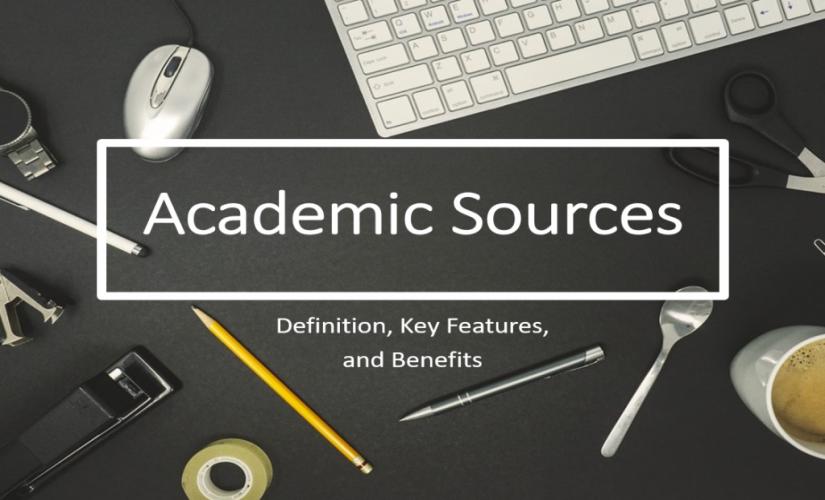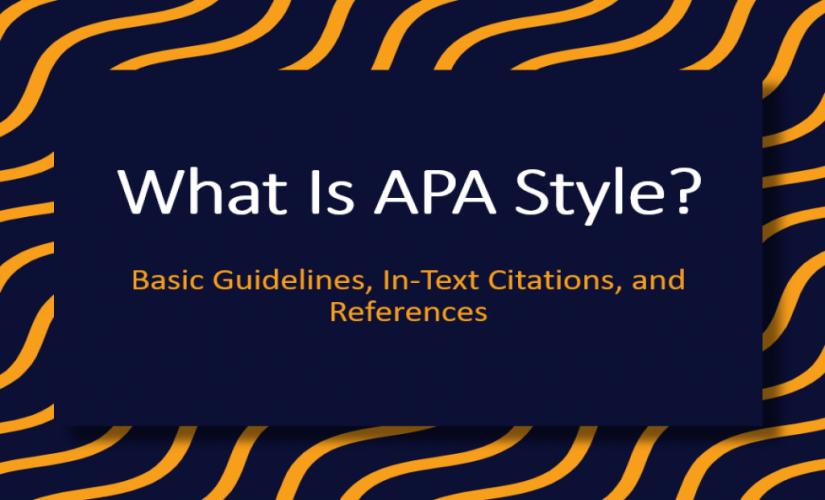Research at higher levels of education typically requires the use of academic sources in writing papers. Basically, students have to identify academic materials to follow the ideas for a topic and appreciate the materials’ contribution to research. Also, they need to use correct articles since it affects the overall work. In this case, an in-depth discussion concerning academic sources focuses on their distinct features and benefits to scholars.
Definition of Academic Sources
Credible sources have distinct features, which make them easy to identify. For instance, academic sources are reference materials that have been scrutinized by experts in a particular field of study. Basically, experts can either be individuals or organizations that blindly review the content of a source to verify its accuracy and correctness. Then, sources’ exposure to a review process does not imply that its content is beyond reproach. In this case, researchers should use academics cautiously despite the approval by expert reviewers. Unfortunately, some flaws may go unnoticed when dealing with new areas of research. In turn, reliable sources make a decent attempt to disclose the circumstances surrounding a study, for example, noting any conflict of interest. Also, the information concerning funders and the institutions involved may prove to be crucial in judging the wholesomeness of findings. Mostly, books and journal articles are considered to be academic materials.

The Main Features of Academic Articles
The use of academic sources is ideal because the singular focus of their content alleviates the difficulty of research. For instance, academic articles are cataloged in libraries and online databases based on the nature of their content. In this case, people arrange academic articles according to the topic under discussion. Also, it makes the location of information much easier. Then, scholars optimize the specificity in content by the use of controlled word-stocks in online repositories. In turn, such a practice allows for advanced keyword searches. Basically, keyword searches enable researchers to sort through thousands of academic pieces. Also, they identify the documents that are most relevant to their area of research within a short period. Thus, the systematic approaches of cataloging academic sources have simplified the research process significantly.
Benefits
Evidence-based information enables scholars to develop a deep understanding of a topic. For example, academic sources provide a detailed explanation of the theoretical framework and methodological approaches employed in a study. In this case, the documentation of the author’s claim, investigative approach, and results allow the researcher to follow the author’s argument and comprehend the underlying logic. Moreover, academic sources present arguments objectively. In turn, people address the research’s limitations plainly. Besides, the exhaustive and unbiased nature of academic materials enables authors to correctly analyze information because they are aware of its interpretational constraints. Thus, the completeness of the information contained in academic sources is essential to the research process.
Conclusion on Academic Sources
The definition of academic sources covers distinguishable features that extend scholars’ particular benefits. Basically, academic sources are unique because they are exposed to blind peer or organizational review. Also, academic materials provide unbiased and comprehensive information. In turn, there are two primary benefits that scholars enjoy when working with academic sources: access to evidence-based information and a simplified research process. Hence, academic articles are invaluable resources for scholarly research.


